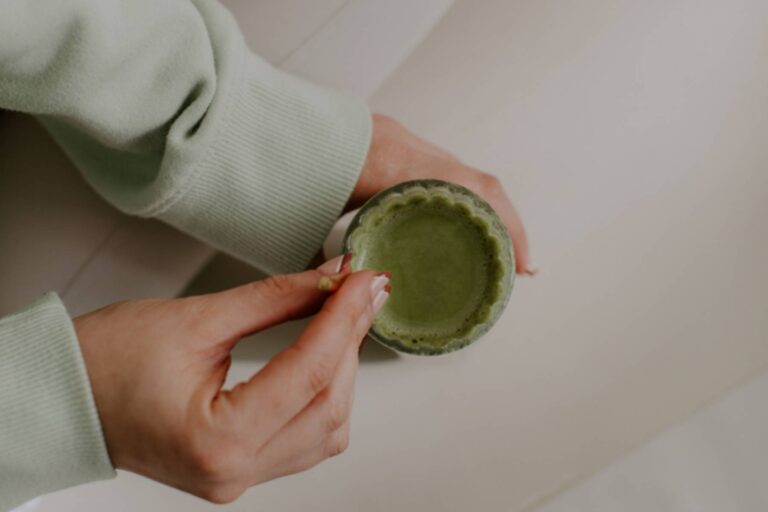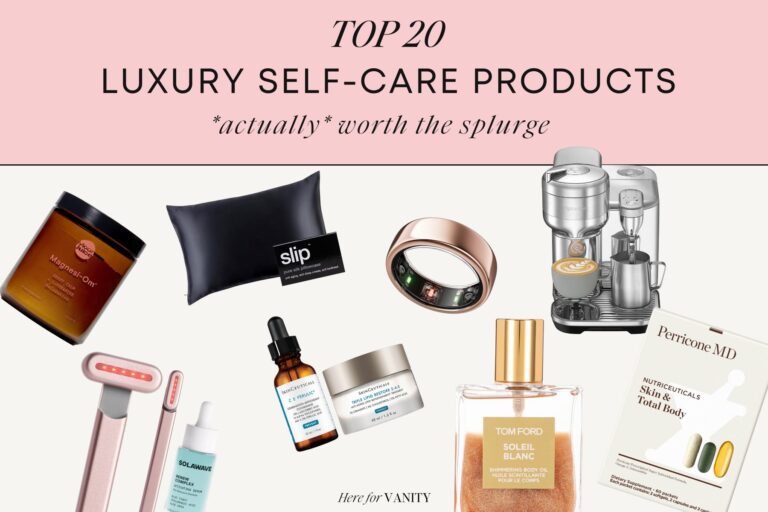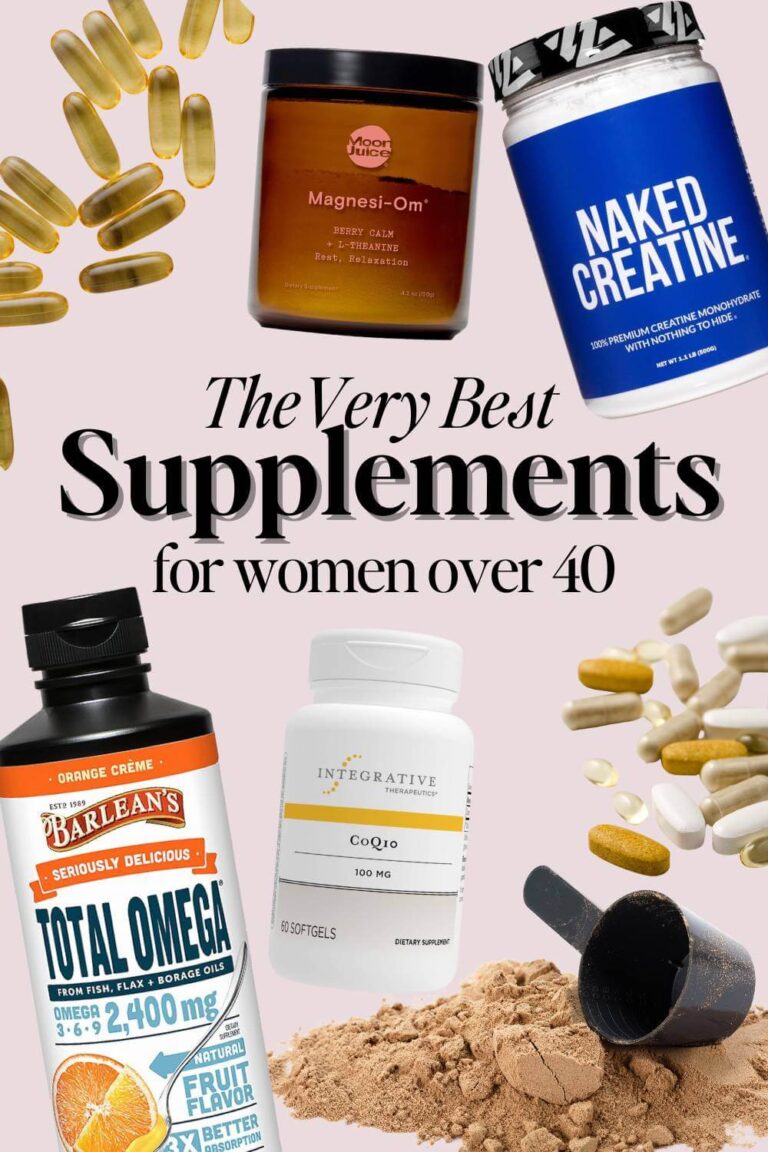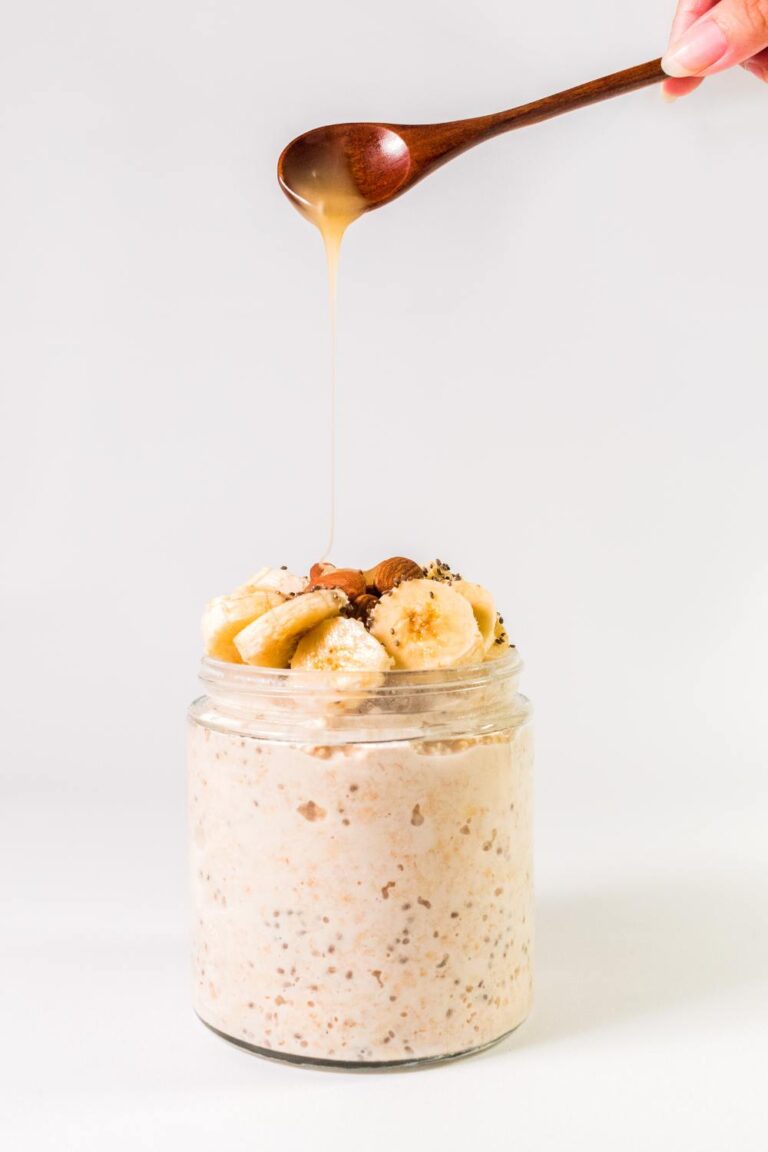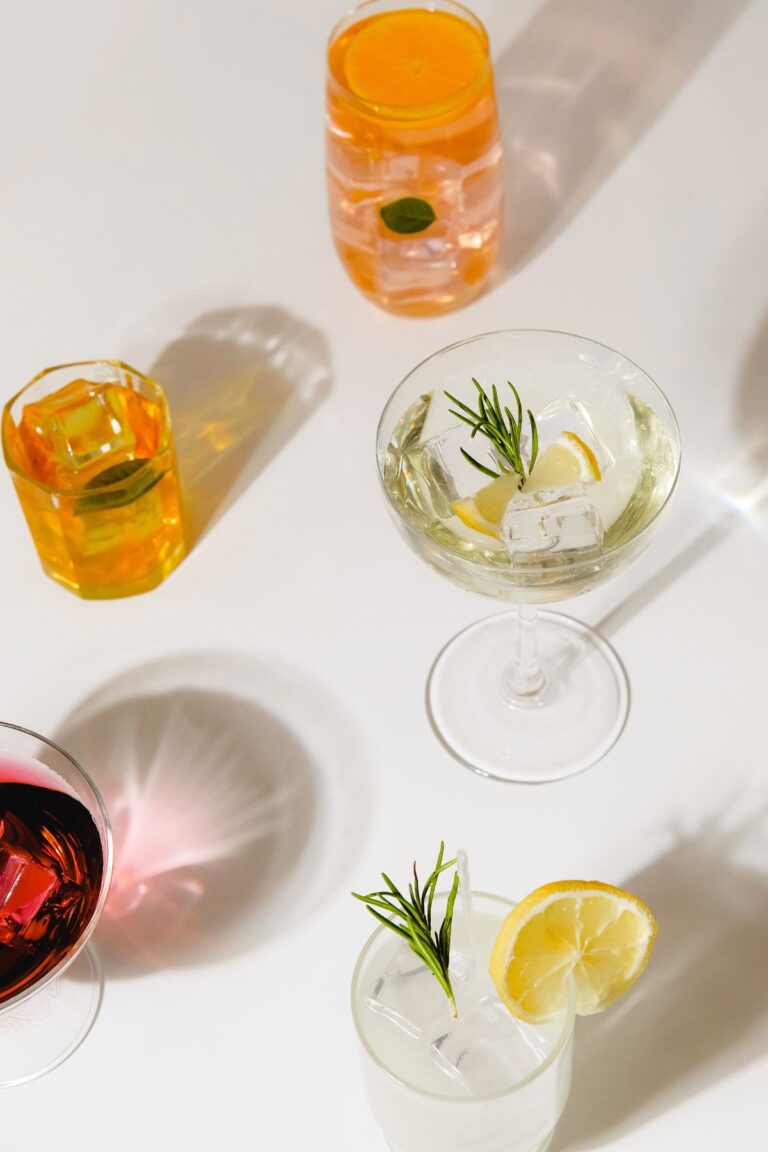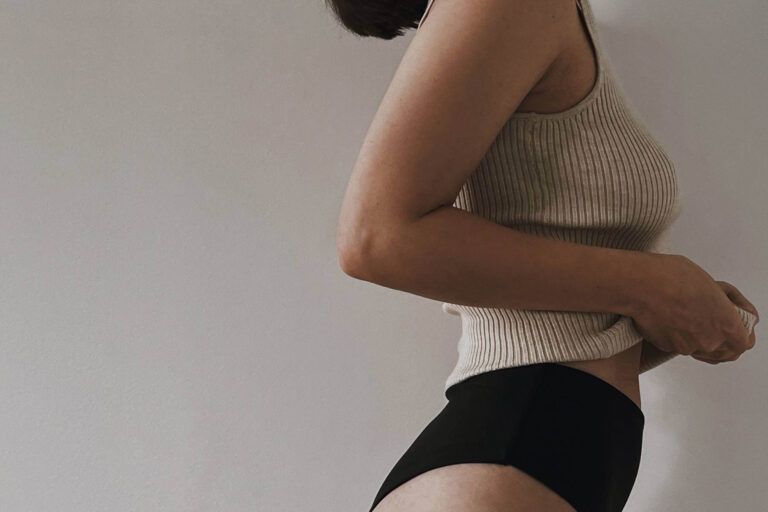Alcohol is Aging You – Here’s How to Reverse The Damage
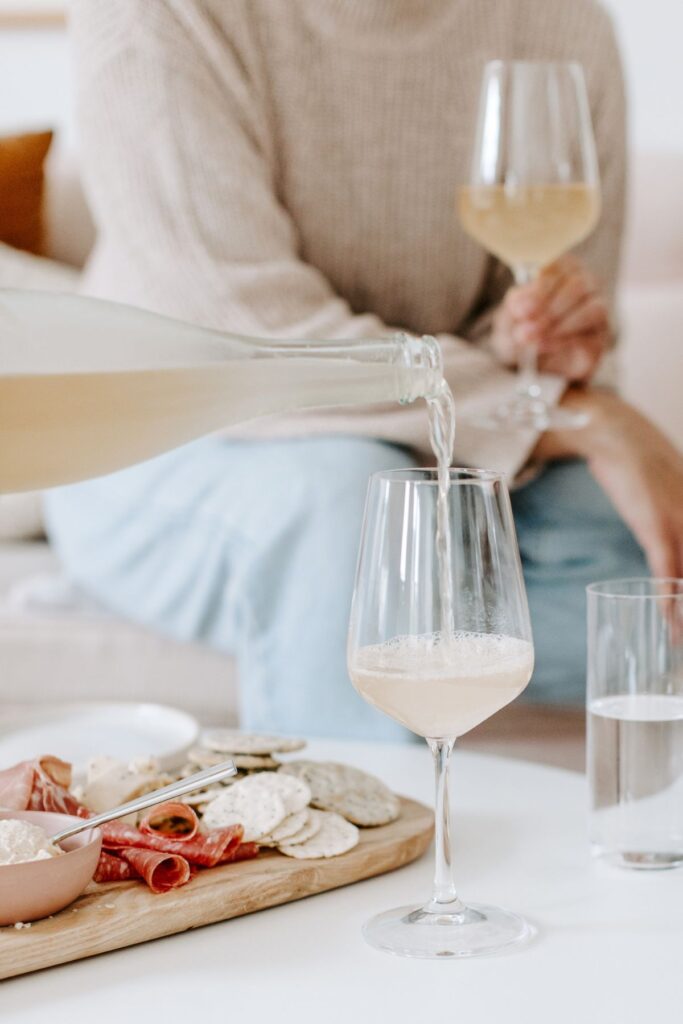
As much as we don’t want to hear it, it’s true – alcohol doesn’t do us any good (especially as we get older). In fact, it significantly ages our skin.
Over time, drinking can lead to visible signs of facial aging, such as wrinkles, sagging skin, and an overall dull complexion.
This is partly due to alcohol’s dehydrating effects on the skin, which deplete the body of essential nutrients and antioxidants necessary for healthy, youthful-looking skin.
The Impact of Alcohol on the Aging Process
As we age, our bodies don’t process alcohol as well, which includes a decrease in the body’s ability to metabolize alcohol.
This means that as we get older, our bodies may become more sensitive to the effects of alcohol, which may be why you can’t have as much as you used to when you were younger.
I remember in my early 30s, having three glasses of wine was the norm for me. Now, at 40, I can’t have more than one, or I just don’t function as well the next day.
Aging does have an impact, and as we age, our liver may become less efficient at breaking down alcohol, leading to higher blood alcohol levels and longer-lasting effects.
How Alcohol Makes You Look Older
We know that alcohol is no good for our body, and one of those effects includes skin issues and making us look older than we are.
And this doesn’t just apply to heavy drinkers – alcohol-induced premature aging can impact even moderate drinkers.
Here are the primary ways alcohol makes you look older:
Alcohol is Inflammatory
Alcohol causes inflammation in the body, and when we consume alcohol, it’s broken down by the liver into a toxic substance called acetaldehyde, which can cause inflammation and damage liver cells.
It’s been said that chronic inflammation is the root cause of much of our aging and disease.
The inflammation from alcohol can lead to digestive problems, skin problems (including redness and acne breakouts), and disease.
Alcohol can also disrupt the gut’s balance of bacteria, leading to inflammation, and gut inflammation caused by alcohol can also impact the immune system.
The gut plays a crucial role in supporting immune function, and when it is disrupted, it can weaken the body’s ability to fight off harmful pathogens and toxins.
This weakened immune system can cause premature aging as the body becomes more susceptible to damage from external factors.
Reducing inflammation is a critical part of maintaining a youthful appearance.
If drinking – don’t overdo it, and try incorporating antioxidant-rich foods before and after indulging.
Alcohol Causes Dry Skin
If you’ve ever felt and looked dry as a desert after a night of drinking, you’re not imagining it.
Alcohol dehydrates the body, which in turn dehydrates the skin. As a result, the skin can lose its elasticity and firmness, leading to premature aging.
Alcohol can also disrupt the skin’s natural barrier function, decreasing hydration and highlighting our fine lines and wrinkles.
If you’re consuming alcohol, you can help dehydration by drinking lots of water with your drink, such as coconut water, which has natural electrolytes that hydrate better than plain water alone.
Alcohol May Cause Acne Breakouts
The research is mixed on this one, and there doesn’t appear to be a direct correlation between acne and alcohol.
However, due to the increase in inflammation and high sugar content of alcoholic drinks, alcohol may contribute to acne breakouts or make acne look worse.
I started researching the connection between alcohol and acne breakouts after I started getting small breakouts on my next and forehead randomly.
It wasn’t until I started tracking my diet and breakout patterns that I noticed if I drank two evenings in a row (even with a half glass of wine), I would get a small breakout.
Apparently, alcohol’s dehydrating effects can disrupt the skin barrier, which can also contribute to breakouts and increase oil production, leading to clogged pores and acne.
Alcohol also impairs the body’s ability to heal and regenerate itself, which can prolong the healing process of existing acne and lead to more frequent breakouts.
Overall, even moderate alcohol consumption can make your skin look worse and contribute to potential breakouts.
I haven’t found a way around this except to reduce my alcohol intake and try not to have a drink more than a night or two a week.
Alcohol Causes Hormone Disruption
Alcohol causes hormone disruption, also known as endocrine disruption, because it throws off the balance and production of hormones such as estrogen and testosterone.
This disruption can negatively affect the skin and show up as dehydration or acne breakouts.
For example, fluctuations in estrogen levels caused by alcohol consumption cause breakouts and contribute to hormonal acne, which tends to occur around the jawline and chin.
Alcohol Disturbs the Gut
Alcohol consumption can disrupt the gut’s balance of bacteria, leading to inflammation. And we know by now that inflammation can negatively affect our appearance, including premature aging.
When the gut is inflamed, it can affect overall digestion and nutrient absorption. This means the body may not adequately absorb the essential vitamins and minerals needed to maintain healthy skin.
Our skin loves good nutrition, so this lack of vitamins and minerals can lead to deficiencies that age the skin.
Alcohol-induced gut inflammation has also been linked to increased intestinal permeability or “leaky gut.”
A leaky gut occurs when the lining of the intestines becomes compromised, allowing undigested food particles, toxins, and bacteria to leak into the bloodstream.
A leaky gut can trigger an inflammatory response throughout the body, including in the skin, and inflammation significantly ages us as it breaks down collagen and elastin fibers in the skin.
Alcohol Decreases Collagen
Collagen and elastin are the backbone of youthful skin and are the essential proteins that give our skin glowing elasticity and firmness.
When these fibers are damaged due to inflammation from alcohol-induced gut disturbance (see above), it can lead to sagging skin, wrinkles, and a generally aged appearance.
Avoiding alcohol is best for maintaining collagen, but you can incorporate collagen into your diet daily. I like incorporating collagen powder in my morning smoothies or this tasty collagen hot chocolate recipe.
Alcohol Causes Midface Volume Loss
Since alcohol disrupts the skin’s antioxidant defense system, it’s more prone to the effects of aging and volume loss.
Alcohol Disrupts Your Sleep
Sleep is critical for good-looking skin!
Alcohol is often associated with relaxation and helping you fall asleep, but it can harm your sleep quality.
This can result in feeling groggy and unrested the next day and potentially have long-term effects on overall health.
When we don’t sleep well, our hormones get out of whack, and we may feel unmotivated and more hungry than usual. This imbalance can derail our health and fitness goals. Not to mention, lack of sleep causes under-eye circles and sallow skin.
To ensure good sleep, it’s recommended to limit alcohol consumption, especially before bedtime.
For the perfect evening routine sans alcohol, check out Your Ultimate Self-Care Night Routine.
Alcohol Increases Oxidative Stress
When alcohol is metabolized in the body, it produces harmful byproducts called free radicals. These free radicals can damage cells, proteins, and DNA, leading to increased oxidative stress.
Oxidative stress occurs when you have more free radicals than antioxidants in the body. This imbalance can lead to inflammation and cell damage, making us look older.
And we’re not just talking about binge drinkers – even moderate alcohol consumption can still increase oxidative stress in the body.
To mitigate the effects of alcohol on oxidative stress, limit alcohol consumption and incorporate antioxidant-rich foods and supplements into your diet.
Antioxidants can help neutralize those free radicals and reduce oxidative stress in the body. Get those antioxidants!
How to Reverse the Damage Alcohol Has Already Done to Your Skin
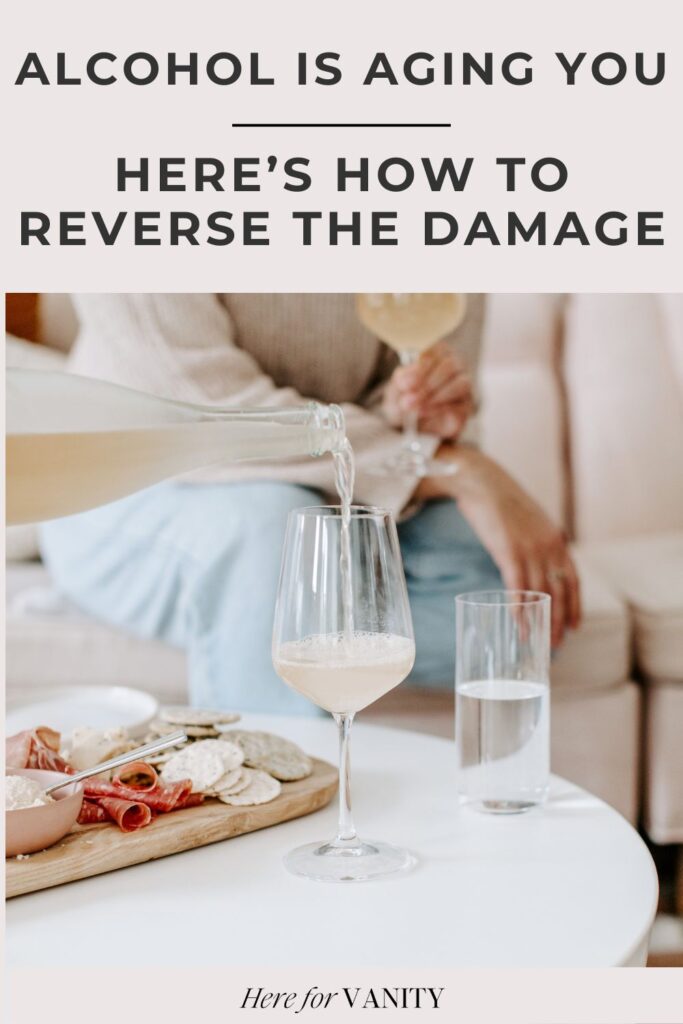
If you’re someone who has had their fair share of fun nights out, chances are your skin may have suffered the consequences of excessive alcohol consumption.
But fear not; there are some ways to reverse the damage that alcohol has already done to your skin.
First and foremost, consistent hydration is key.
Drinking plenty of water with electrolytes (or even coconut water) can help restore moisture and elasticity to the skin. It may even help reduce the appearance of fine lines and wrinkles.
Opt for products that contain ingredients like vitamin C, retinoids, and niacinamide, which can help stimulate collagen production and improve skin texture.
Exfoliation is also important in reversing the damage caused by alcohol. Regular exfoliation can help remove dead skin cells and encourage cell turnover, leading to brighter, more even-toned skin.
The Best Cosmetic Treatments for Aging Skin
Sometimes, great skincare only goes so far.
The good news is that several treatments are available to address aging skin. Here are some options:
Botox
My holy grail.
Botox is a relatively noninvasive cosmetic procedure that involves injecting a neurotoxin (Botox) into the face’s muscles to temporarily paralyze them and reduce the appearance of wrinkles.
If you’re suffering from dull, dehydrated skin, botox gives a nice glow by smoothing out the skin.
Chemical Peels
Chemical peels work by removing the top layer of skin with a. topical exfoliating peel, which can help minimize fine lines, wrinkles, and sun damage.
Laser Treatments
Lasers such as IPL or Broadband Light (BBL) can target specific skin concerns, such as wrinkles, dark spots, visible blood vessels, and uneven skin tone, with minimal downtime.
I’ve tried five sessions of IPL without much improvement, although I’ve seen fantastic results on others. I am trying BBL right not to tackle some stubborn age spots and will report the results!
Sculptra
I started Sculptra when I was 39 and never looked back!
Sculptra It’s not a filler but an FDA-approved biostimulator that increases collagen over time, helping to restore volume and improve the appearance of wrinkles, folds, and sagging skin.
The treatment involves injecting Sculptra into targeted areas of the face over a series of sessions.
The results are gradual and can last up to two years, making it a long-lasting solution for improving facial volume and reducing the signs of aging.
Obviously, before undergoing any cosmetic treatment, you should always find a good aesthetic provider who can provide personalized advice.
How to Cut Back on Alcohol
If you’re putting in the work to look and feel great, reducing alcohol is key.
I believe in moderation, but that doesn’t work for everyone.
Even when I do have a drink, I know that I have to do some overtime on my beauty regime to make up for it. Here are some of my favorite tools and resources to cut back on alcohol:
Try a 30-day Alcohol Detox.
If you’re looking to cut back on your alcohol consumption or take a break from drinking a 30-day alcohol detox could be just what you need.
A detox involves giving up alcohol for 30 days to give your body and mind a chance to reset and reevaluate your relationship with alcohol.
You’ll likely have improved sleep, increased energy levels, and better skin during this time.
A 30-day alcohol detox is not a one-size-fits-all solution, and it’s essential to seek professional help if you are struggling with alcohol dependence.
However, once when you get to 30 days, you’ll have a new outlook on alcohol and then realize the detrimental impacts on your body.
I’ve done a few 30-day detoxes, and each time, I feel amazing and have more energy than ever before.
Read a Motivational Book
Books, podcasts, blogs – whatever works for you.
I recommend one book repeatedly, and I read it about once a year: The Naked Mind by Annie Grace.
Seriously, this book will give you a boost of motivation to quit alcohol.
She tackles this topic with an insightful perspective, challenging societal norms surrounding alcohol consumption and shedding light on the hidden consequences it can have as we age.
I also highly recommend checking out Andrew Huberman’s podcast episode “What Alcohol Does to Your Body, Brain & Health | Huberman Lab Podcast #86.”
In this episode, he dives deep into the effects of alcohol on our bodies, brains, and overall health.
It’s an insightful and informative resource that can help you understand the impact of alcohol consumption and motivate you to cut back.
Download an Accountability App
Apps like Reframe use a neuroscience approach to help you rethink alcohol and its impact on your body. I tried a free trial and liked the evidence-based education and tracking.
Try a New Mocktail
For a while, I habitually enjoyed a drink while making dinner. I looked forward to it – that small boost of dopamine of anticipating winding down was addictive.
I still do once in a while, but more often than not, I now replace this habit with a fun, sugar-free mocktail.
My tip is to make it a cocktail-esque experience with a fancy wine glass, cocktail ice cubes, and good-for-you ingredients that boost your health.
Final Thoughts on Alcohol & Aging
There’s no way around it – reducing alcohol consumption will help you look and feel better. Period.
BUT If you’ve already done some damage, there are ways you can reverse the negative aesthetic effects of alcohol.
Great skincare, cosmetic procedures, and reduced alcohol intake will help get your skin glowing again.
Tell me your thoughts. Have you considered cutting back on alcohol to prevent aging?

